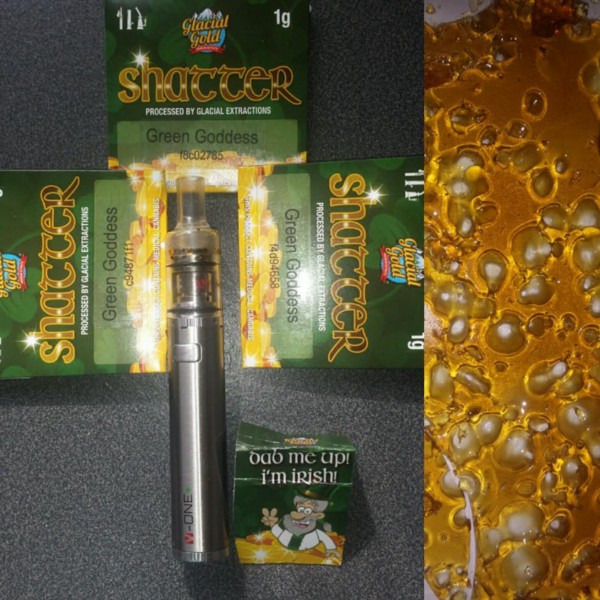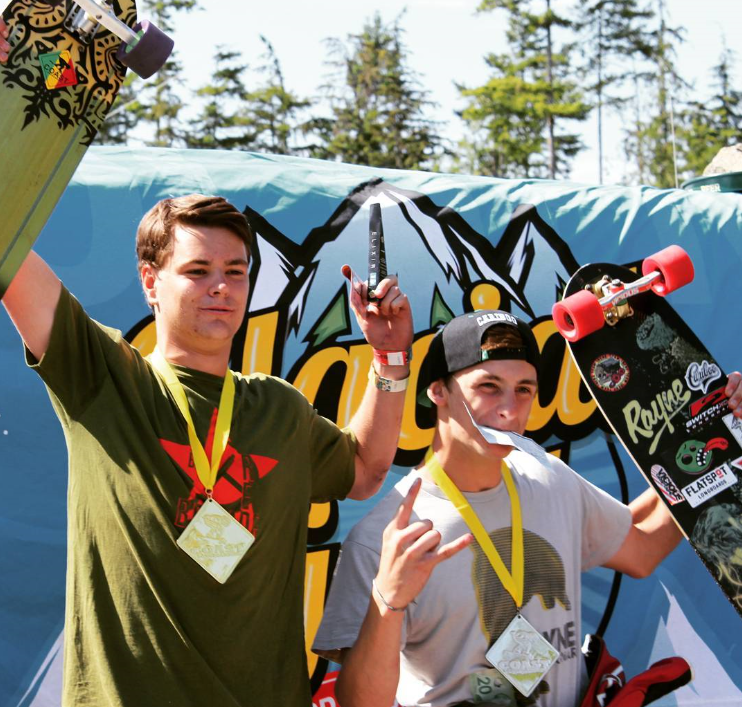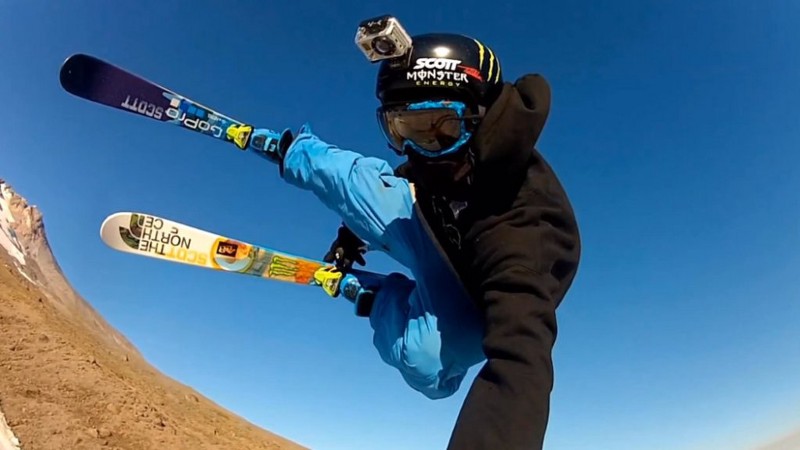Branding is more than just making a logo, we all understand that.
But creating a brand does not by definition create community around that brand, that’s a different focus and skill set.
Community, happens when people rally around your brand. They don’t ask for money, they don’t need permission, they are motivated by wanting to be part of something that they perceive to be bigger than just money or titles, it’s a movement.
Brand building and community building are not necessarily (I would argue rarely) part of the same skill set. Both are important, but they both need to be working together as part of an agreed goal to grow community around the brand.
This is particularly the case for consumer products, building a community around your brand will drive sales to way no ad campaign ever will.
Let’s use the recent St Patrick’s day holiday as an example.

Creating a shamrock edition of your product will connect with a few people, but let’s be honest, it’s a great example of tent pole marketing.
Tent poles, for those of you unfamiliar with the term in marketing, are those overarching events that you can build a promotion around without having to necessarily be involved in it directly.
IE: Spring clean up event, Summer Sale, Black Friday Promotion, or St Patrick’s Day Party.
These are all tent pole marketing strategies, and while they are a practical way to leverage the holidays in a relevant way for your brand.
They are not the same as building a community around your product. Frankly it’s somewhat lazy marketing.
Building community is a more involved process. It takes more time and requires you to find and highlight committed community members and draw them in and make them feel like they are a valued member of that community.
Good community building creates brand ambassadors for you.
These are people that take it upon themselves to talk about you at dinner parties with their friends, these are people that will leave work early to come be part of a demonstration, a march or something as simple as a meet and greet.

They complement each other, but they are very different pieces of the marketing challenge for a company. Understanding the value of a good community builder is essential to getting your brand to grow without constantly having to apply pressure.
A strong community around your brand will do the uphill pushing for you.
They’ll come and help you setup your booth at an event, just to be part of your community.
They’ll organize camping trips, picnics and local meetup’s because they are passionate about the community they (and you) belong too.
They will work tirelessly to help you build your brand, because they consider themselves to be part of a movement, not just a customer buying your product.
Let’s look at a few companies that have gotten community building right over the years.
These are in no particular order and are only a few of the many examples of companies that have leveraged community marketing strategies successfully to become bigger brands.
Red Bull is a pillar of the extreme sports community.

Not because people love their energy drink, you never even see people drinking their products in any of the pictures. They have tirelessly organized events as part of a wide variety of passionate communities.
BMX riders, cliff divers, skateboarders, racing in all it’s forms, even ones you didn’t know existed before. Red Bull had gone out of their way to create events for these ultra niche, ultra engaged athletes.
Red Bull understands the value of attaching themselves to adrenaline based sports groups and being perceived as a leader, an enabler of alternative culture in those unique communities.
They are a company that makes it possible to experience something more than watching some skaters at your local bowl.
Participating in an experience, as a performer or as a spectator, fills you with a scense of unique inclusive pleasure.
It’s part of a branded experience that is relevant, exciting, memorable and most of all, shareable.
Burning Man has nurtured a community of creators

There are lots of raves and festivals out there, it is one of the verticals that depends on community. I would argue that few have been as successful at building an engaged community than burning man.
Self described “burners” spend the whole year organizing local events, planning their camps and building art cars and other creative pieces that they bring to burning man with their friends to participate as part of a larger community.
Star Wars is a brand that spawned an enduring community of fans.

People fly from all over the world and spend hundreds, sometimes thousands of dollars on costumes that let them participate in the star wars universe in their own way.
Conventions are one of the places that these overly engaged fans connect with others that are as obsessed with Star Wars as they are.
The stories of Lucas Arts having mixed feelings about these communities are legendary, no other film franchise has as illustrious a history of being challenged by their fans.
GoPro has evolved into more than just a camera company.

There are no shortage of small, cheap cameras out there that you can use to capture the exciting moments of your day.
Yet GoPro has succeeded in a whole new category for their product.
They’ve not only created a community around their brand, but have added to the bottom line value of their products by leveraging their community.
They sell camera’s that you can get for half the price or less on e-bay any day and yet … As a brand they are successful at standing out and differentiating themselves from those other companies by leveraging the huge community of thrill seekers and the incredible footage that gets shared by that community.
I can’t think of any other camera company that has more successfully done this, become more than a camera company because of the engaged communities that they have enabled.
Apple was possibly the most successful community building company in the world.

This list would not be complete without acknowledging the power of community that Apple has been able to curate.
Steve Jobs was a master at understanding, leveraging and curating an engaged community around his products.
Unlike GoPro however, they’ve reached past the function of their core product and tapped into multiple communities with an inclusive message.
We all have heard of terms like the cult of Apple, we all have a few friends that will happily admit to being Apple Fan Boys.
Jobs started by tapping into creative communities like film makers, designers and music creators. Partially because of their focus on creating tools that could help these people do a better job, but just as importantly, by building their brand on the backs of these peoples achievements and experiences with their computers.
They’ve extended the functionality of the Apple brand into one akin to luxury apparel. In the same way that Rolex is known for it’s watches, showing an apple logo on your phone, your laptop, or now your apple watch, tickles the same fancy of people that want to show off a Gucci logo or a Prada logo on their clothing. It has become synonymous with showing that you are part of an upper class, part of an elite community.
Finally, Apple has even managed to leverage that sense of community among the tech and mainstream media.
One of the powers that Steve Jobs had was in leveraging the media to talk about his products before they launched.
Despite a reputation for being incredibly secretive about their product development, getting access to early news, leaks or tips, became a badge of honor among tech reporters who felt included in a small club (it wasn’t actually that small) of insiders that got the leaked news before others did. Only on the express condition that they spread that news wide and far of course.
In summation.
Any company can create a brand and do tent pole marketing around that brand.
It’s what has made media empires buying ads in magazines, on google search or now in Facebooks ad channels.
Great companies understand how to get past those media channels to empower their own word of mouth advertising through legions of engaged fans that spread their message like gospel, bypassing the gatekeepers and giving life to your brand the way no advertising campaign ever will.
Websites by Masterhouse
Masterhouse Media is an innovative digital consulting agency from Vancouver, BC specializing in web development and mobile apps. Masterhouse is best known for launching the popular Internet portal Clubvibes.com in 1999, one of the first social media platforms on the Internet. The company is currently focused on building digital strategies and premium websites for clients. Find out more at masterhouse.net




